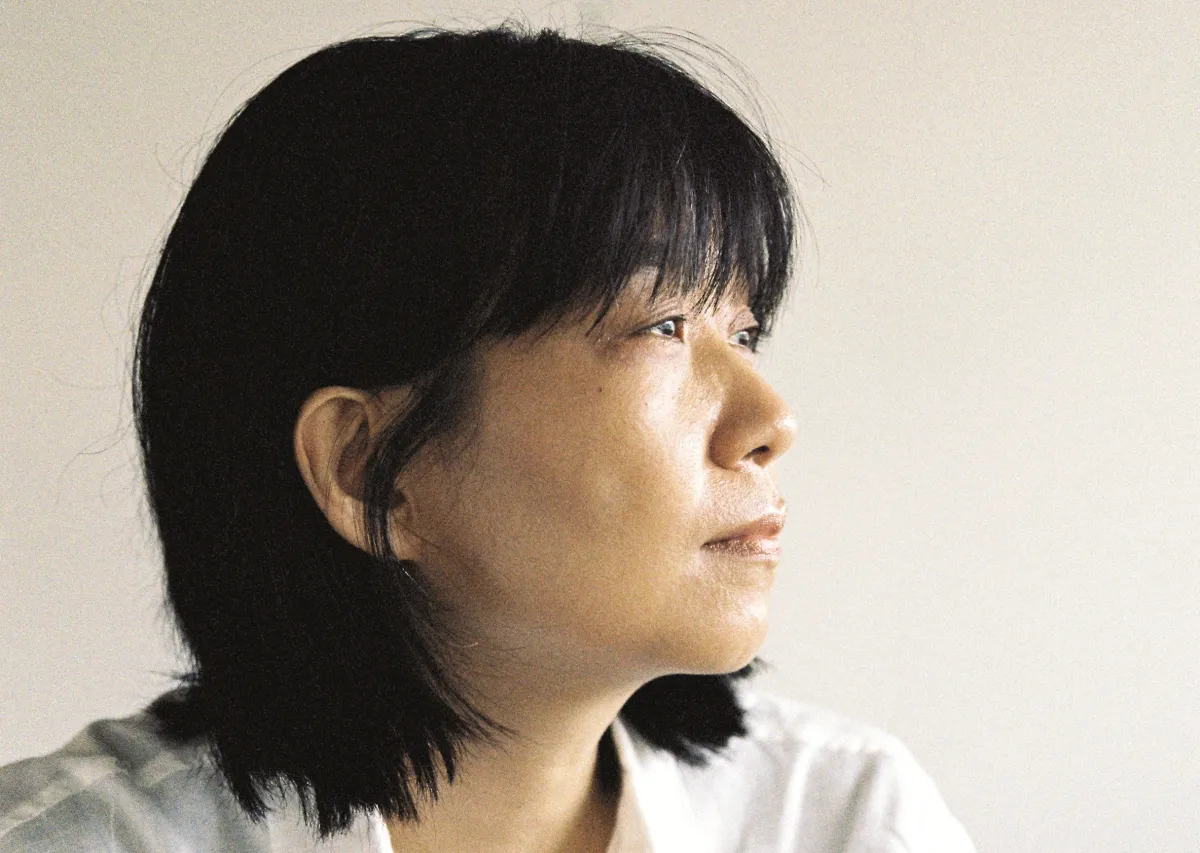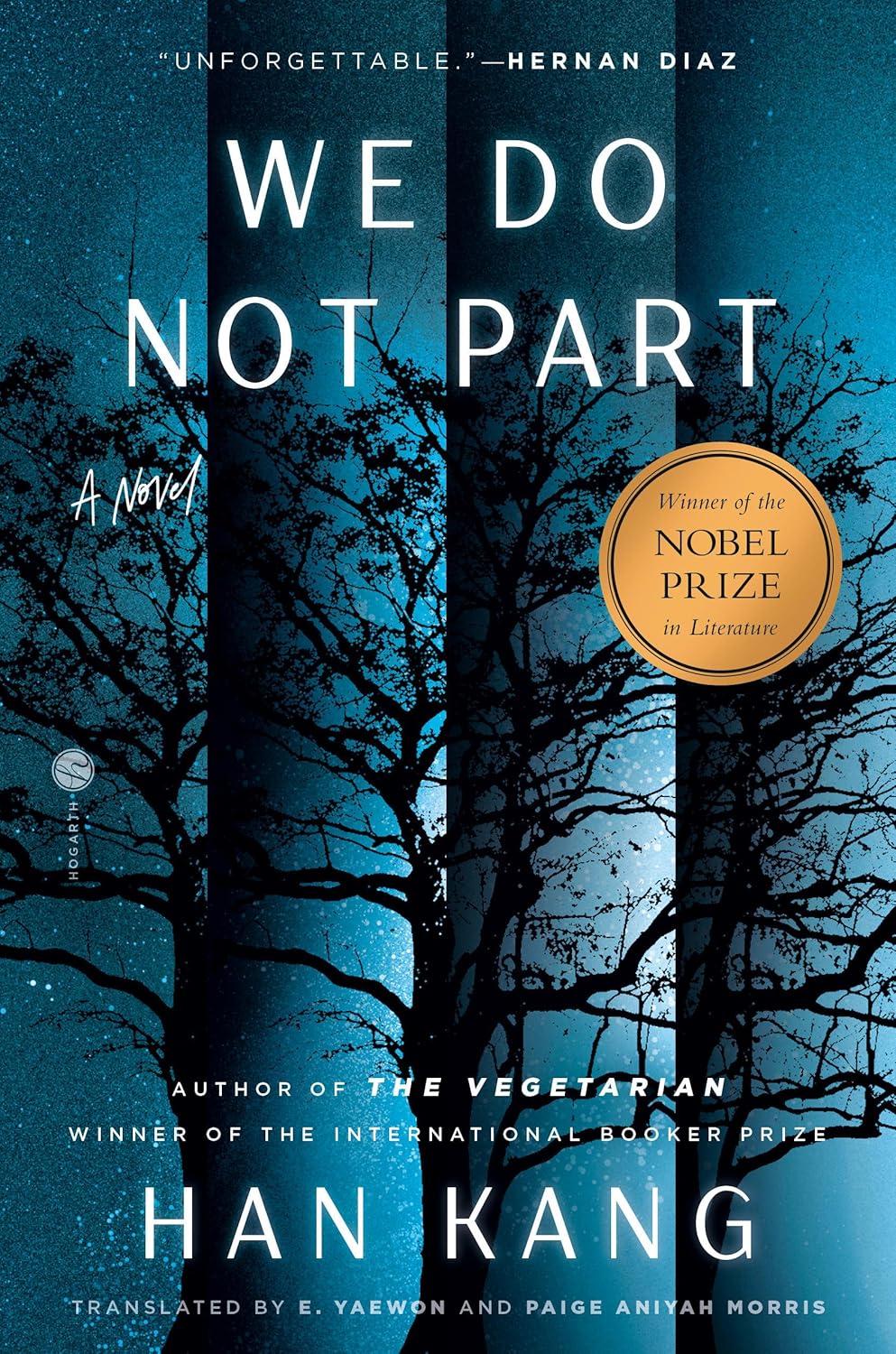A cruelly gentle dance of ghosts

"It's a sad an beautiful world."
- Roberto in Jim Jarmusch's Down by Law
In her Nobel Prize acceptance speech on 7. December this year, Han Kang not only gave an extremely informative introduction to her work, but also attempted to trace the underlying nuances that have defined her novels since her first major success, the Booker Prize-winning The Vegetarian (2007). In particular, she identified two questions: 'why is the world so violent and full of suffering?' and 'why is the world still so beautiful?' These are questions that she has always attempted to answer in her novels. But with her novel We Do Not Part, published in Korean in 2021 and now available in English, French, German and Spanish, she can see another component, already hinted at in youthful diary entries in 1997, taking shape in her narrative form: love. Put like this, one might expect something corny, but if you read Kang's new novel from start to finish, it becomes clear that the author is driven by themes neither corny nor childish.
 Hogarth Press
Hogarth PressHan Kang | We Do Not Part | Hogarth Press | 272 pages | 28 USD
In the novel, meanwhile, she once again addresses the almost insoluble question of how the world can be at once so beautiful and so cruel. A complex theme that Kang probably explored most powerfully and harrowingly in Human Work, published in 2014, in which she tells of the Gwangju Uprising and the resulting massacre in May 1980, of the living and the dead, the ghosts that haunt the survivors and their feelings of guilt even years later.
Kang introduces her new novel with this literary quest, which in turn introduces another, because it is only through this that two of the three main characters - Hang Kang's alter ego Gyeongha and her old friend Inseon - meet again, and Gyeongha emerges from her own existential crisis. However, this reunion is not a typical friendly reunion - it is overshadowed by Inseon's serious injury, which Gyeongha can only view so calmly in the hospital because she already senses that this injury is not only connected with Inseon's artistic reworking of a dream of Gyeongha's and the massacre of 1980, but also with another long-suppressed chapter of Korean history, the uprisings on Jeju Island in 1948 that preceded the Korean War and the extensive mass murders that continued until May 1949. One trail leads to the next, every suffering has a sequel.
Kang follows the new trail mercilessly and shows, in the poetic and hyper-real description of Gyeongha's winter journey to Jeju Island, that Inseon's self-mutilation is also a cry of despair provoked by Inseon's preoccupation with her mother's life, and an attempt to come to terms with a powerful, transgenerational trauma, albeit with the help of her lifelong friend. It is not clear whether Inseon is actually present or still in the Seoul hospital, where treatment consists of her wounds being re-opened every three minutes, over several weeks, to prevent the blood flow from stopping, gangrene setting in, and the hand having to be amputated. It could also be the ghostly alter ego of her friend, who goes through documents, photos and oral testimonies of her mother with her, transforming the latter into a new, previously unknown person.
However, these ghostly encounters have nothing to do with the classic elements of magical realism, but represent a factual introduction to the world of the dead and ghosts, who are brought to life via Inseon's mother and her written and oral testimonies. As in Human Acts, this resembles the deliberately sober methods of the documentary theater of the 1960s by Rolf Hochhuth, Heinar Kipphardt or Peter Weiss. Just like these authors, Kang remodels the most diverse sources into a whole that goes far beyond the purely informative content of the Wikipedia page on the Jeju Uprising and its consequences. However, this also means that the reader has to exercise patience, otherwise may be tempted to go straight to Wikipedia. But this does not detract from the disturbingly absorbing reading experience. More than the facts, which Kang reveals layer by layer, like peeling an onion, it becomes clear, as when the core of the onion is reached, that the truth has no end. More than the factual truths, it is rather the pain of the living that must be soothed, a pain that has more impact in Kang's wintry first part - the reader fears for Gyeongha's life as much as for a talking parrot, and Inseon must endure her horrific treatment - than in the sober descriptions of the killings.
At the same time, Kang’s plot progression offers insight into the novel’s ongoing development - we are witnessing a kind of "work in progress", the creation of a novel born out of the narrator's deep depression, with marked suicidal outbursts.
The fact that Kang manages to integrate these autofictional elements so subtly into the political narrative, making it clear that the political is always also personal, makes Kang's novel a special experience with a universal character. It separates itself from the topos of Korean history through the prism of the intimate and becomes a guide for each of us to deal more consciously with the ghosts of the past and the dangerous populist politics of the present.
This includes not only facing up to grief, which in Kang's work, as in traditional Buddhist rituals, is the color white and is symbolised here by the ubiquitous snow, but also the act of speaking. With the living as well as with the dead , that is, with all the ghosts that surround us, becoming more numerous with every year we live.
However, even more than the admission of grief or the questions raised in Kang's Nobel Prize speech as to whether the present can save the past or vice versa, and whether the living redeem the dead or the dead save the living, for Kang it is above all the love mentioned at the beginning that makes life bearable. A love that, however, has little to do with the love we commonly recognise, but which, for all its beauty, is always aware of pain. Or, to use Kang's words at the end of her novel, as tender as they are cruel, when the two friends are as close as they are distant, feeling as small as the world and as big as alone, and Kang reaches for a final literary flourish and a formula that may not explain everything, but reveals a great deal:
"Then she stroked my head, my shoulders and my back. I remember her overflowing love penetrating me. To the very fiber of my heart, which took my breath away ... In that moment, I understood the terrible pain that dwells in love."
Anyone who finds too much ‘sour grapes’ in this can rest assured that this novel by Kang also has a much more political reading than might seem. And the political impact of her books, despite all the poetic nuances and metaphorical levels, was evident during the South Korean governmental and democratic crisis in early December. In the second, ultimately successful attempt to impeach President Yoon Suk Yeo, none other than Han Kang and her discussion of the 1980 massacre was quoted and it was made clear that May 1980 made December 2024 possible, meaning that the dead saved the living. This should also apply to the dead in Kang's new novel.



